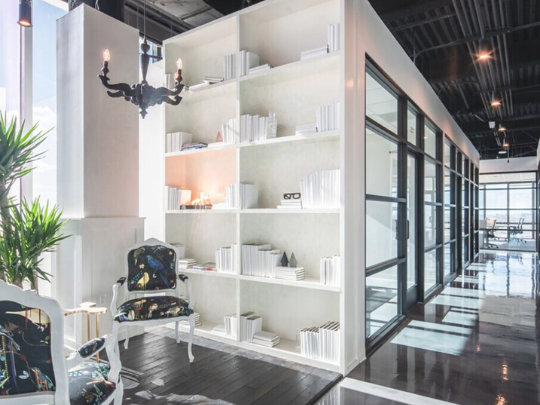
Are you Finding Meaning in Work - Find Best Coworking Space Tips In Dallas - VENTURE X DALLAS PARK CITIES
Co-working Stats - Harvard Business Review - Report by Venture X Dallas Campbell Centre CEO
According to the Harvard Business Review, research published in the Journal of Organizational Behavior shows that people who use co-working spaces score an average of 6 out of 7 on a working thriving scale.
In a report explaining why this is, Harvard researchers stated, “This is at least a point higher than the average for employees who do their jobs in regular offices, and something so unheard of that we had to look at the data again.”
In fact, the researchers at Harvard were so startled by the high numbers of workers who thrive in a co-working environment, they set out to determine the reasons behind it. Here is what they found.
1. Finding Meaning in Work
When Harvard researchers studied people who co-work, they found that people who choose their working environment are also more likely to have the flexibility to choose what type of work they do.
This flexibility means they’re less likely to feel bogged down by work that’s unfulfilling or unsatisfying. Instead, people who co-work tend to have the freedom to pick their projects. By working on something they enjoy, they’re more likely to identify as someone who thrives in the workplace.
2. Lack of Office Politics
People who use co-working spaces are also more likely to come from a variety of backgrounds and industries. This is different from the traditional office environment, where work tends to center around one type of industry.
In a traditional office environment, there is often an increased sense of competition as well as office politics.
In some cases, the competition is inescapable and perhaps even encouraged by management. There can also be a strong push to conform to a certain set of standards or work culture.
This dynamic is much less likely to happen in a co-working environment, where workers have greater freedom to choose their projects.
As the Harvard Business Review states, “Because there is little direct competition or internal politics, they don’t feel they have to put on a work persona to fit in.”
3. More Opportunities for Collaboration
Many people who use co-working spaces are small business owners and entrepreneurs. In an environment where fellow co-workers have a wide range of skills, they can often seek out people with the expertise they might not possess.
Additionally, they can offer their own expertise and skills to colleagues. This can foster a sense of community you don’t ordinarily find in a traditional work setting. People who co-work can learn from others in their space, trading knowledge, and skills that help both parties succeed.
4. Greater Job Control
Numerous studies have shown that the traditional 9 to 5 work schedule no longer works for most people. Technology has made workers more connected, and a growing number of people seek a work-life balance that allows them to work when it’s convenient and when they’re more focused. This might be a Saturday morning or late in the evenings during the week.
This is where co-working can help workers thrive. Because co-working spaces tend to be open during non-traditional hours, workers can choose when they work. If they desire a more collaborative environment, they can work during peak hours during the week. If they crave a quieter environment, they can work later at night or on weekends.
5. Increased Sense of Community
Working from home has become more popular in recent years, but plenty of workers say that too much isolation can throw them off balance and even make them lose focus. The convenience of being home all the time can make it hard to draw an important line between household tasks and work-related obligations.
Additionally, even self-proclaimed introverts can start to feel the lack of social connections. In some cases, a schedule that involves only working from home can lead to burnout, as the worker’s daily routine becomes monotonous.
Co-working offers an opportunity to get as little or as much social interaction as each individual desires. There are collaborative spaces where people can come together in groups, and there are quiet, contemplative spaces where workers can get the important focus time they need to complete a task.
6. Spaces Designed for Mental and Physical Well Being
The reality is that most traditional offices are designed with profits rather than people in mind. Most businesses build a work environment around what helps their bottom line — not what keeps their people happy and healthy.
However, co-working spaces came along during an era where occupational health studies show that a poor work environment can make people sick, as well as lead to reduced productivity and higher turnover rates.
Co-working spaces often take advantage of natural light and more user-friendly design. Instead of one-size-fits-all work areas, co-working environments offer a range of options that suit a variety of work styles. This tends to promote mental and physical health and well-being among the people who use co-working spaces.
Key takeaways for people who live in Dallas, TX
If you a resident of Dallas, TX or planning to relocate to Dallas and want to find new meaning to work, avoid office politics, find more opportunities for networking in a collaborative culture or just because, Dallas Venture X coworking located at Dallas Campbell Centre offers opportunities such as modern flexible executive suite private offices, beautiful workspace solutions with flexible month-to-month agreements. No leases or long-term contracts required.
Driving directions
https://g.page/VentureXCampbellCentre?share
website https://dallasparkcitiesflexibleoffices.venturex.com
Sources:
